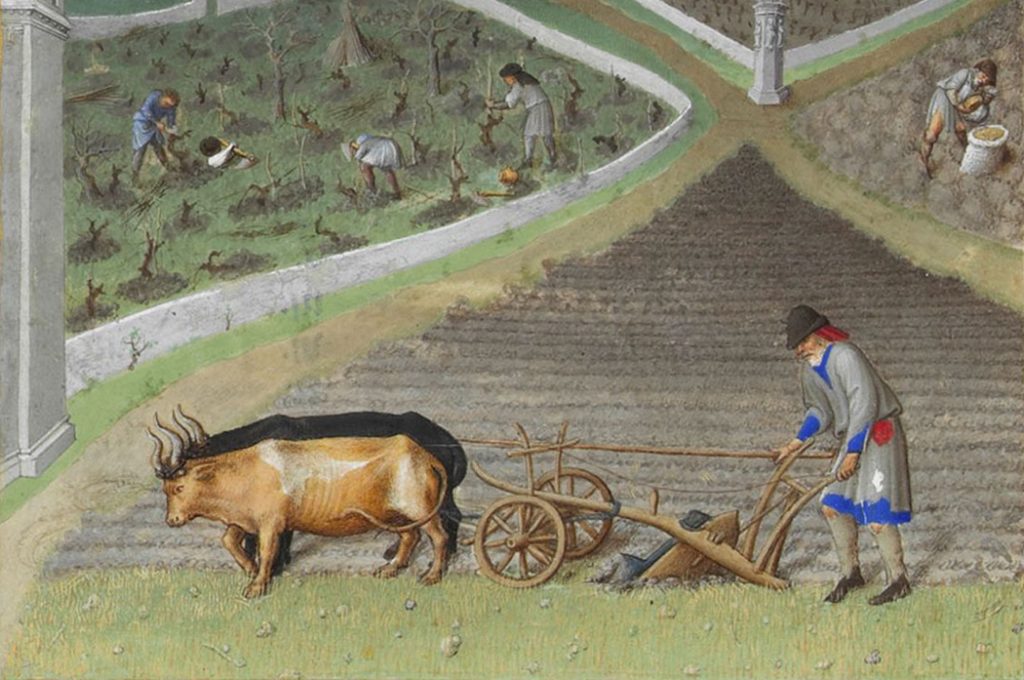
But as we saw Distaff Sunday is the day that women traditionally went back to work and Plough Monday was the men’s turn. 2022 it was on the 10th January. Plough Monday was not just a normal day of work though. Particularly in the North it was celebrated with a procession of ‘plough boys’, with a decorated plough and team and known as ‘Fool Plough’. Mumming, sword dancing and foolery propelled people back to work.
Here is a lovely recipe for a ‘Norfolk Plough Pudding‘ brought to my attention by Sue Walker.
The Christmas/Mid Winter break went on for some until Candlemas in early February, and in Jane Austen’s day the school boys had a 6 week holiday at Christmas much to the distress of Mary Musgrove in ‘Persuasion’, Chapter 18. She complains bitterly of children being left with her during the long winter holiday. But as it was written on 1st February I will leave the joy of that great FOMO letter till then.
This is a period when the world is dead but underneath the ground the bulbs are stirring. This year in London, after a very warm period, we have had a lot of premature budding. In my local park Euphorbia’s have been budding, there is blossom on a Japanese Cherry Tree and on a Bear’s Breech. The Park has a high wall facing south and this does provide a very sheltered spot but even so! In my arctic, North-facing garden some geraniums, and fuchsias are hanging on, and I have two white flowers on my Convolvulus which is unheard of.




This has been the hottest period in the world since records have been taken. A false spring can cause major disruption to agriculture. Plants put a lot of energy into surviving the winter so they can bloom in the spring. If they are fooled to bud early, the plant will pay a cost when the cold weather comes back, and this will mean either no flowering or fruiting later in the year or a reduced yield. Caitlin Reinartz, (follow the link above) says ‘the false spring of 2012 caused an estimated $500 million dollars of losses in the orchards of Michigan.’
Discover more from And Did Those Feet
Subscribe to get the latest posts sent to your email.
